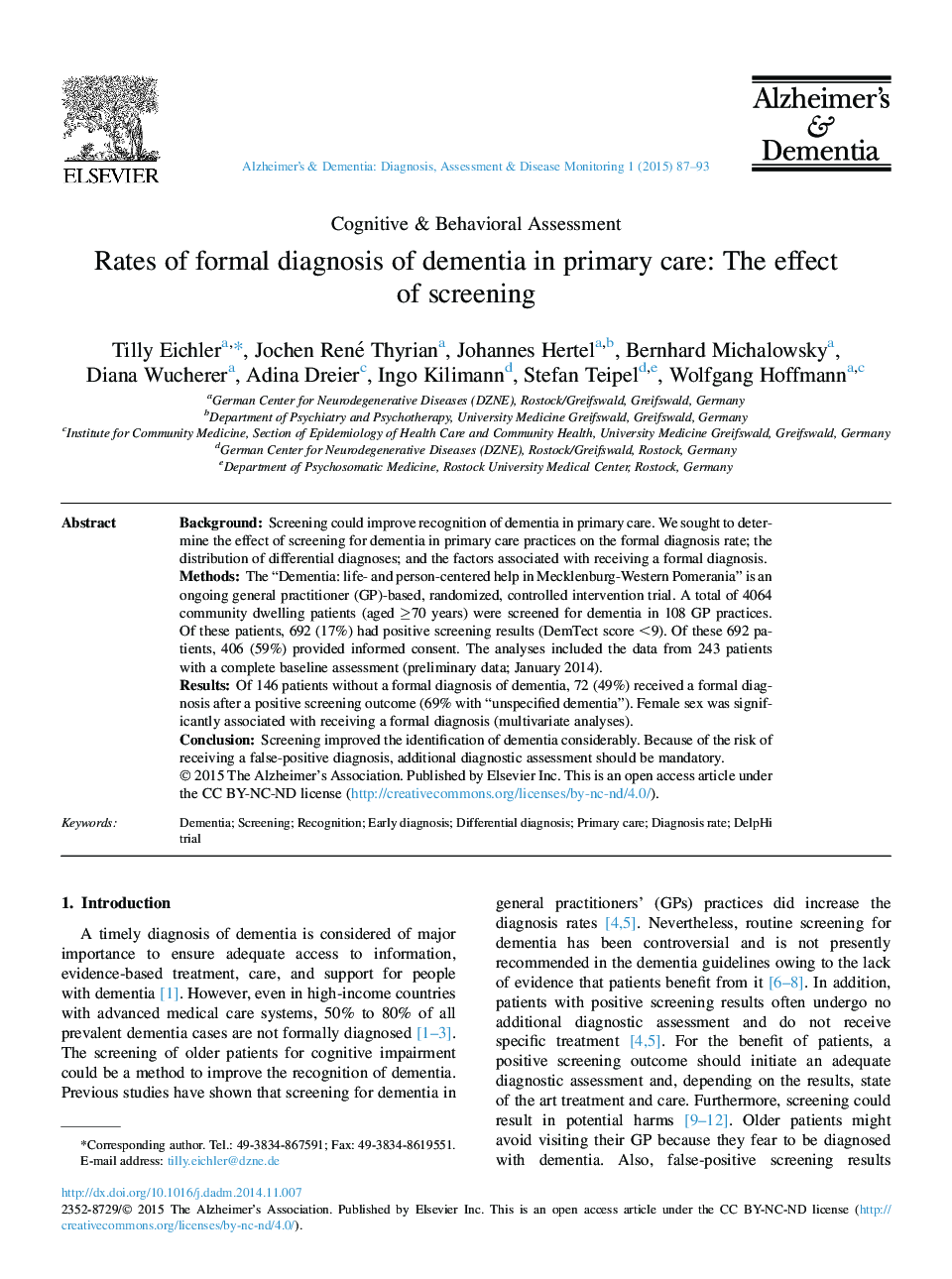| Article ID | Journal | Published Year | Pages | File Type |
|---|---|---|---|---|
| 3032054 | Alzheimer's & Dementia: Diagnosis, Assessment & Disease Monitoring | 2015 | 7 Pages |
BackgroundScreening could improve recognition of dementia in primary care. We sought to determine the effect of screening for dementia in primary care practices on the formal diagnosis rate; the distribution of differential diagnoses; and the factors associated with receiving a formal diagnosis.MethodsThe “Dementia: life- and person-centered help in Mecklenburg-Western Pomerania” is an ongoing general practitioner (GP)-based, randomized, controlled intervention trial. A total of 4064 community dwelling patients (aged ≥70 years) were screened for dementia in 108 GP practices. Of these patients, 692 (17%) had positive screening results (DemTect score <9). Of these 692 patients, 406 (59%) provided informed consent. The analyses included the data from 243 patients with a complete baseline assessment (preliminary data; January 2014).ResultsOf 146 patients without a formal diagnosis of dementia, 72 (49%) received a formal diagnosis after a positive screening outcome (69% with “unspecified dementia”). Female sex was significantly associated with receiving a formal diagnosis (multivariate analyses).ConclusionScreening improved the identification of dementia considerably. Because of the risk of receiving a false-positive diagnosis, additional diagnostic assessment should be mandatory.
